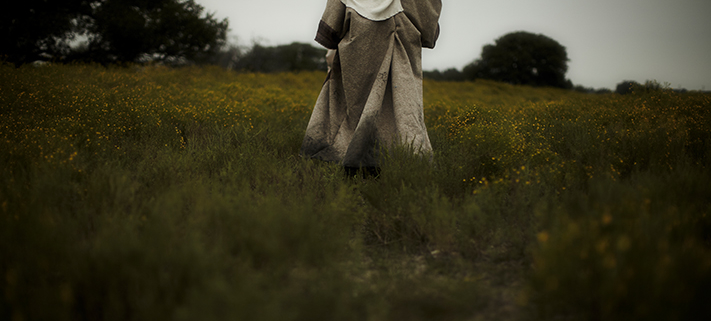Merging for mission – Part 2
Finding that they could be stronger together, two congregations decide to merge into one.
Julie K. Wietzke
Steve Waldschmidt describes a recent church merger between Good Shepherd, St. Peter, Mo., and Apostles, Dardenne Prairie, Mo., as a simple math problem: “You have twice the weekly offerings, twice the pastoral staff, twice the volunteer base, and twice the members. Then you cut the debt in half.”
What does it equal? New opportunities for ministry within the congregation and for mission outreach out in the community.
The merged congregation’s new name, Christ Alone, completes the rest of the equation: “The name Christ Alone serves as a reminder to ourselves of why we’re here and why we’re doing this—to serve Christ alone,” says Tim Raster, president of Christ Alone, now a one-year-old congregation.
Understanding the situations
Good Shepherd and Apostles were both located in St. Charles County. Situated about five miles apart, these congregations worked to reach out in this suburban area about 30 miles from St. Louis across the Missouri River.
Started in the 1980s, Good Shepherd decided to add on to its facility in the early 2000s to open a preschool to serve the community. The school ran for about ten years before the congregation decided to close it in spring 2016.
The school’s closure opened up some questions for the 150-member congregation. What would be the ministry focus moving forward? How were members going to pay the building loan? How should the congregation use its building now that it no longer had a school?
While a task force considered options like leasing part of the building or maybe even moving into a storefront, the congregation reached out to its neighboring 120-member congregation Apostles to find out what its plans were for the future. Apostles started as a daughter church of Good Shepherd in 1999 when growth in that area was booming.
Good Shepherd discovered that while their ministry situations were different, Apostles was having similar difficulties: a lot of debt, tired volunteers, and reduced programming due to lack of funds. Getting the congregations’ names out was also difficult in an area so close to the Lutheran Church–Missouri Synod’s headquarters.
“The devil was working on both of our churches,” says Seth Bode, then pastor at Apostles.
Analyzing the options
Apostles and Good Shepherd were already working together in certain areas, like combining some education classes and preaching at one another’s congregations. As the pastors began talking, they wondered if they should collaborate even more.
After attending a WELS multi-site conference in Arizona, Bode and Waldschmidt discussed some options with their congregations. “We could become a multi-site where we had the same name and same branding, or we could combine our efforts where we are still stand-alone congregations but doing more ministry together, or we could do a full merger into one building,” says Waldschmidt.
After both congregations agreed that the topic should be explored further, a joint task force made of members from both congregations began studying the situation in earnest.
The group began by mapping out where members from both congregations lived. The maps dramatically overlapped. “We’re looking at two physical properties serving the same area,” says Raster.
The discussions then revolved around opportunities. “We really were laying it all out on the table and starting with what do we want to do rather than what resources do we have,” says Bode. “Then we matched those goals with a vision of what things could look like, always knowing God could determine the steps far better than we could.”
This led to looking at the options open to the congregations: two buildings, two pastors; one building, two pastors; two buildings, one pastor. “We talked about every angle,” says Raster. “Some of them were uncomfortable topics. As a group we had to be very sensitive. There’s logic; there’s emotion; there’s spiritual; and there’s God’s Word. Trying to balance that together and make good decisions was challenging.”
The group decided that merging into one church with two pastors at the Dardenne Prairie site was the best direction. Both congregations overwhelmingly agreed, and Christ Alone, the new congregation, held its dedication Oct. 15, 2017.
Maximizing the mission
Christ Alone celebrated its one-year anniversary in October 2018 and is going strong. The congregation now has 305 members and had five youth confirmations this past year. Waldschmidt reports that members are excited to volunteer and have been meeting a lot of new people from the neighborhood through community events held at the church.
The congregation also sold its other church building and now has more money for ministry. “Before everything was about cost,” says Raster. “Now we need to stop thinking about ways NOT to spend money, and we actually need to think of ways to put our money to good use. This is a new challenge for us!”
That isn’t their only challenge. Waldschmidt now is the only pastor at Christ Alone, after Bode took a call last summer. Members also have to learn to work together to develop the congregation’s culture and determine ministry methods. “What we need to focus on is how Christ Alone is going to do this, not how did Good Shepherd do this or how did Apostles do this,” says Waldschmidt. “We have to keep it mission-driven rather than me-driven.”
Being mission-driven is the lesson that Waldschmidt says he took away from this merger experience. “Mindset really is everything. You can’t do this in a way that is survival-driven or you’re not going to make it. You have to do it in a way that is mission-driven.”
Being mission-driven also means that the work doesn’t stop once the merger is complete. “If you’re going to maximize the mission and escalate your efforts in the community, it works best if everyone works just as hard as when you started,” says Bode. “The danger is that you think because there’s more people, you can help out half as much. But that defeats the purpose of the whole idea.”
Working together to carry out the Lord’s mission is key when discussing a merger—whether it is expanding as a multi-site or, as in this case, narrowing to a single site. “That’s what makes it different than just trying to cobble two congregations together,” says Peter Kruschel, who served as a home mission counselor for ten years, including working with Christ Alone through the merger process. “It takes people who are willing to work together to carry out their mission.”
He continues, “It was critical that [Apostles and Good Shepherd] joined forces. It could have taken so many forms, but they needed to work together because neither one was strong enough to carry out the mission of the church effectively alone. They can do so much more together.”
Julie Wietzke is the managing editor of Forward in Christ.
This is the second article in a three-part series on church mergers, multi-sites, and closings.
SIDE BAR:
Congregational Services is working on a program that will help clusters of congregations that are considering merging into a single site or operating as multi-sites. Jon Hein, coordinator of Congregational Services, says the plan is to help congregations work through all the options and considerations that are part of a merger process similar to the one Christ Alone experienced. “The goal is to have congregations thinking about mergers and multi-sites proactively, not just as a desperate Hail Mary pass,” says Hein. “There are legitimate reasons for churches that are doing well to consider merging or going multi-site, simply so they can be even stronger together.” Look for more on this program in summer 2019.
SUBMIT YOUR STORY
Do you have a manuscript, idea, or story from your own life you’d like to share for use in Forward in Christ or on wels.net? Use our online form to share it to our editorial office for consideration.
SUBSCRIBE TO FORWARD IN CHRIST
Get inspirational stories, spiritual help, and synod news from Forward in Christ every month. Print and digital subscriptions are available from Northwestern Publishing House.
Author: Julie K. Wietzke
Volume 106, Number 2
Issue: February 2019
Copyrighted by WELS Forward in Christ © 2021
Forward in Christ grants permission for any original article (not a reprint) to be printed for use in a WELS church, school, or organization, provided that it is distributed free and indicate Forward in Christ as the source. Images may not be reproduced except in the context of its article. Contact us



